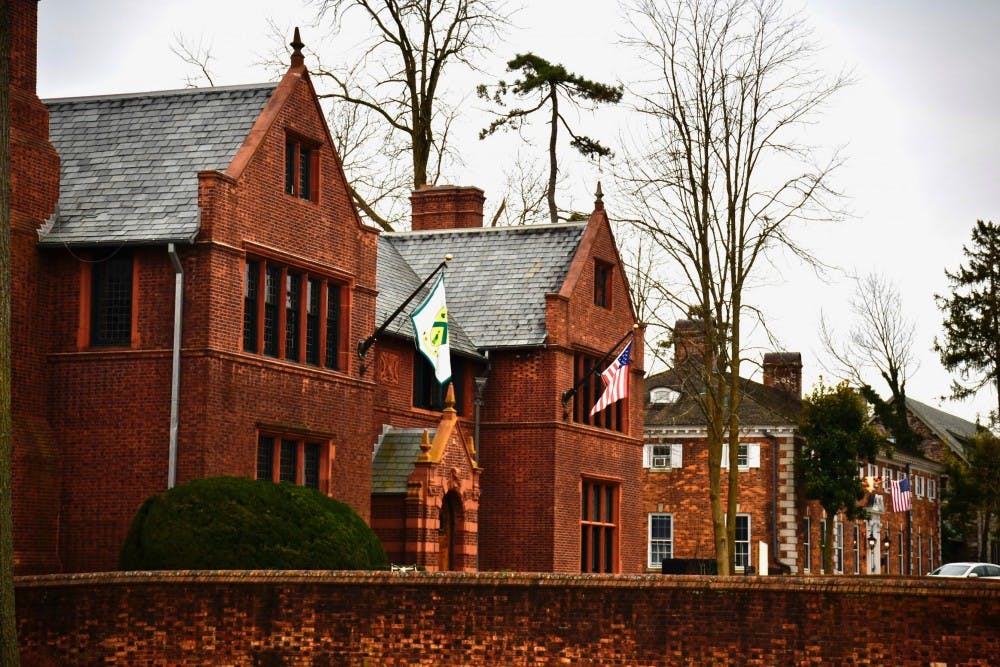What is Bicker?
Bicker is the selection process for six of the 11 eating clubs — Ivy Club, Tower Club, Tiger Inn, Cottage Club, Cap and Gown Club, and Cannon Dial Elm Club. For three days, sophomores — and juniors and seniors who choose to bicker — meet people in the clubs through a series of formal and informal conversations. This is followed by member or committee discussions who decide who gets into each club.
How does the process even work?
The Bicker process varies by club, but we have gotten some inside looks at the process in a couple of clubs.
In 2019, Ivy had its 2017 Bicker information leaked. In Ivy’s Bicker process, bickerees have a series of formal conversations with current members which are then ranked and described on a scorecard. Friends of bickerees can also submit cards for that person. In 2019, the digitized versions of the 2017 scorecards were anonymously leaked onto TigerConfessions, a Facebook group which had roughly 3,600 members at the time.
In 2021, an anonymous Cannon alum revealed that the Cannon bicker process involved two nights of icebreaker games, during which members can upload red cards or green cards to a portal. Each member then gives every bickeree an initial score — the bickerees with the top 25 scored being “turbo’d” or immediately accepted to a club. All other bickerees are discussed by the whole group, and bickerees may have a close friend make a case for them. The Cannon alum noted that athletes have a leg up in Cannon, where, in the alum’s year, 72 percent of Cannon was in an athletic team.
How did bicker begin?
While informal eating clubs had existed for decades at Princeton, in 1879 a group of students rented and then bought a building on Prospect Ave, then known as Ivy Hall, which would become what is known today as Ivy Club. By 1914, at which point all 11 of the clubs currently functioning were open, informal ways of choosing new members were gradually formalized into “Bicker.”

How have alternatives to bicker developed?
In 1917, 600 sophomores signed a petition stating that they wouldn’t join any club unless everyone who bickered got a bid. By the 1920s, protests to abolish Bicker had begun. In the years since 1879, the number of students in eating clubs had increased to almost 80 percent of the student body. In the 1940s, a series of reforms to the Bicker system ensured that students could bicker as friend groups, and that every student would get into some club. From 1949–1957, every sophomore who chose to bicker got a bid. In 1958, however, 23 students, most of whom were Jewish, did not receive a bid. The scandal has since been termed the “Dirty Bicker of 1958.”
In 1967, Terrace abandoned Bicker and became the first sign-in club, with other clubs following suit. Beginning in the late 1980s, students were only allowed to bicker one club; in 2013 most bicker clubs began to allow “double Bicker” again, so that students could bicker two clubs at once. Ivy and Tower stayed single bicker for a time before joining the system.
Princeton’s Campus Club went “unbicker” shortly before it closed due to lack of funds in 2005. The club’s location was re-opened by the University in 2009 as an alternative to the eating club system. The space now hosts Coffee Club and other social spaces.

In 2019, Charter Club, which had been sign-in, began soliciting proposals re-imagining the club in an attempt to increase membership. Ultimately, they decided to make Charter Club Bicker again for the first time since 1979. This was planned to begin after the 2019–2020 school year ended — instead, the club went “selective sign-in,” awarding points to students who show interest in the club without the formalized systems of conversations and discussions for prospective members.
Laura Robertson is a Staff News Writer for the ‘Prince.’
Please send any corrections requests to corrections[at]dailyprincetonian.com.








